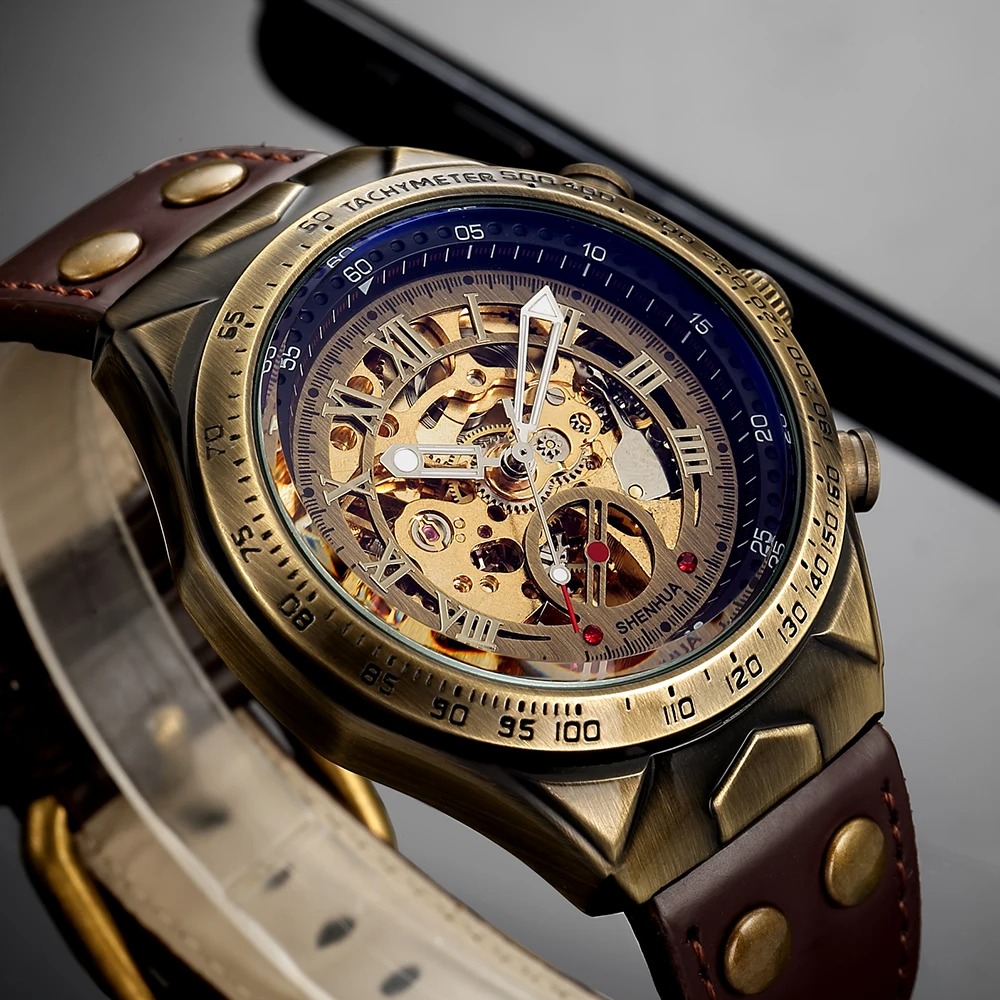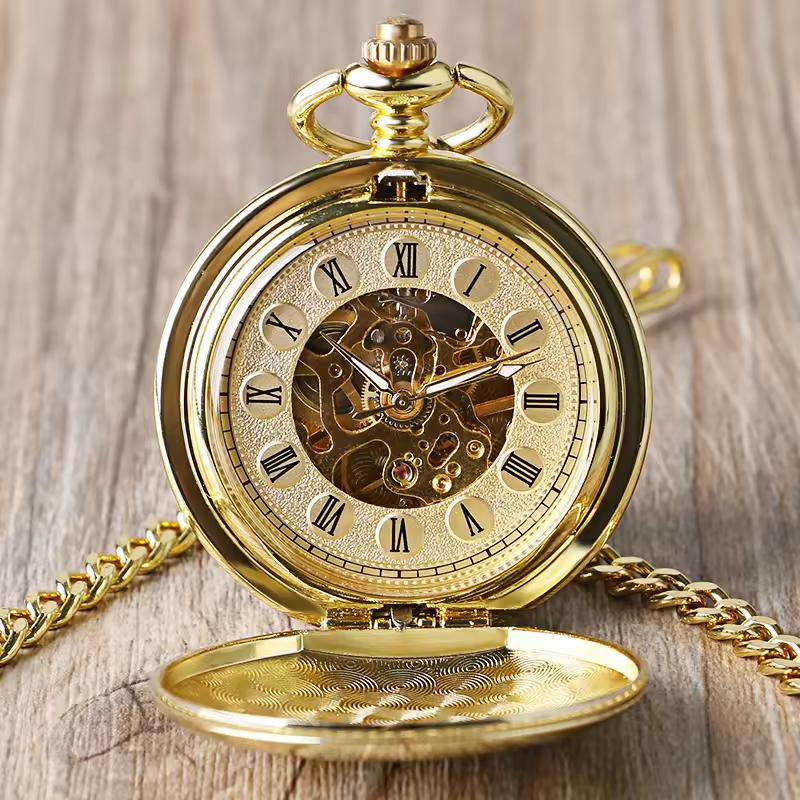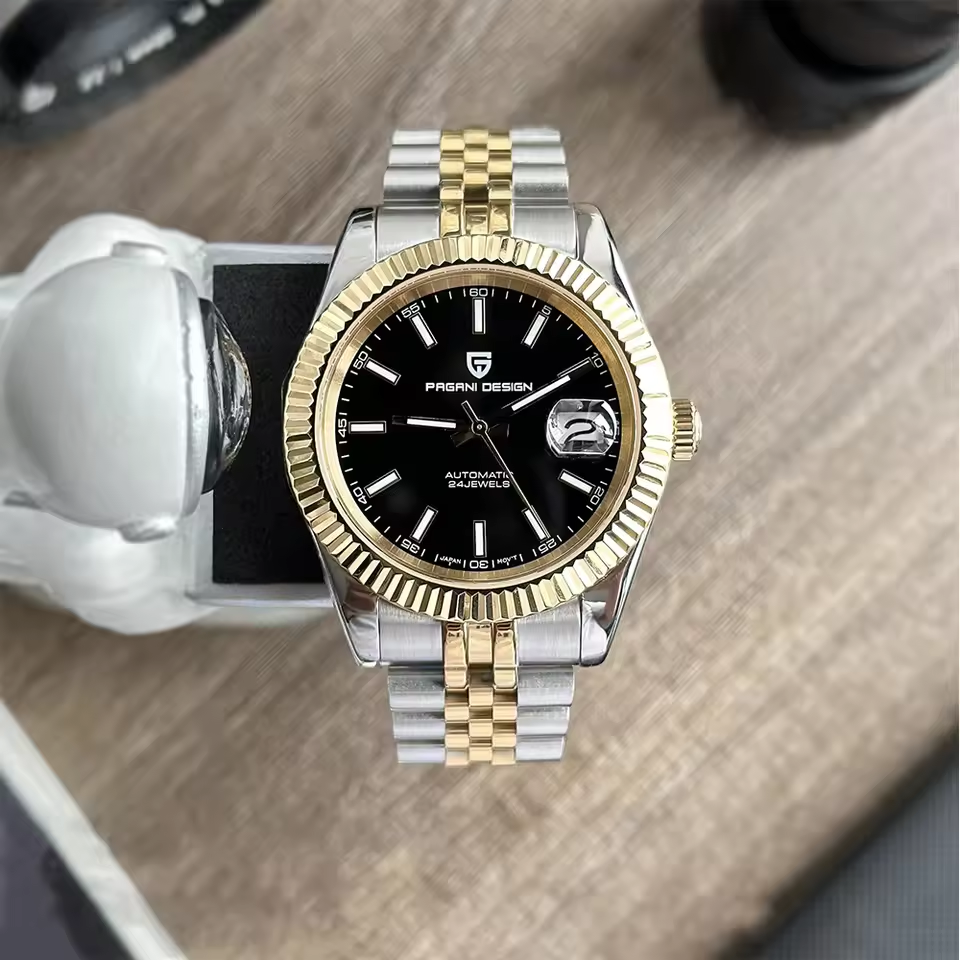The Ultimate Guide to Mechanical Watches: Craftsmanship, Heritage, and Timeless Elegance
In an era dominated by digital and quartz timepieces, the allure of the mechanical watch remains unmatched. These timeless instruments symbolize not only utility but also artistry and craftsmanship. Each mechanical watch houses intricate mechanics that have been honed over centuries, making them fascinating objects of admiration for collectors, enthusiasts, and casual buyers alike.
A mechanical watch operates without batteries, relying instead on the intricate mechanics of gears, springs, and levers. As you wind the watch or wear it, it winds itself, capturing the essence of timekeeping in a tactile, physical form. This guide seeks to delve deep into the world of mechanical watches, exploring their historical significance, offering care tips, and highlighting some of the best brands and models available today.
Whether you’re a seasoned watch collector, a luxury consumer looking for an investment, or a casual buyer intrigued by the craftsmanship, this article will provide valuable insights into the captivating realm of mechanical timepieces.
What Is a Mechanical Watch?
A mechanical watch is a type of timepiece that uses intricate mechanical movements to keep time. Unlike quartz watches, which rely on batteries, mechanical watches utilize a system of gears and springs. The two main categories of mechanical watches are automatic and manual.
1. Automatic Watches
Automatic mechanical watches, often referred to as self-winding watches, wind themselves as the wearer moves. This movement charges the watch’s mainspring, allowing it to run without manual winding. Automatic watches are highly favored for their convenience and innovation. They consist of a rotor that swings with the motion of the wrist, transforming kinetic energy into potential energy.
2. Manual Watches
In contrast, manual mechanical watches require the wearer to wind them manually. Users must turn the crown of the watch periodically to keep the mainspring tensioned. This traditional form of power exemplifies the purity of mechanical watchmaking, appealing to purists and collectors who appreciate the hands-on approach to winding.
Both automatic and manual mechanical watches share a common foundation: an intricate arrangement of gears and springs working harmoniously to measure time accurately. This intricate design is part of what makes mechanical watches so special; each timepiece is a marvel of engineering, demonstrating human ingenuity.
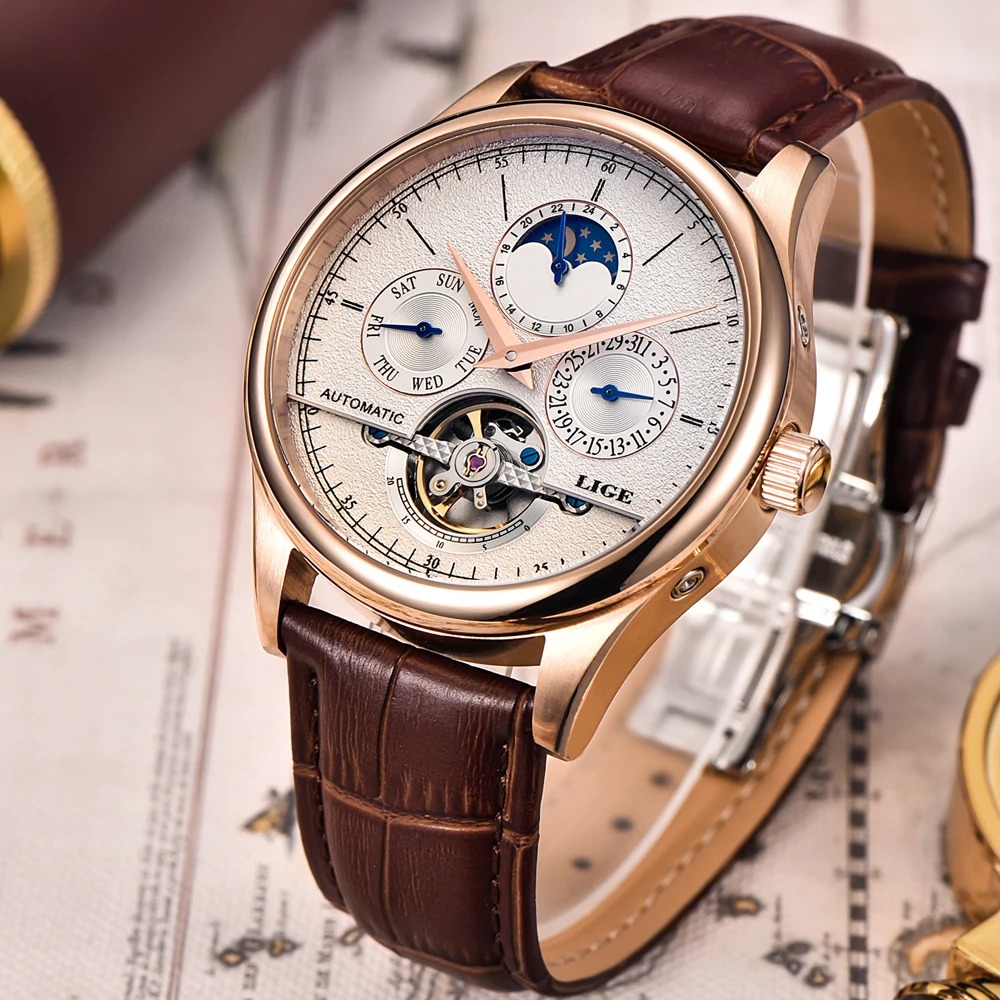
Mechanical Watch vs. Quartz Watch
When considering a mechanical watch, it’s essential to understand how it compares to quartz timepieces. The two types of watches serve the same essential purpose—keeping time—but they use fundamentally different mechanisms.
1. Mechanism Differences
Quartz watches operate using battery power. Inside these watches, a quartz crystal vibrates at a consistent frequency, which drives a motor that moves the watch hands. They are known for their accuracy, minimal maintenance needs, and lower cost.
Mechanical watches, as discussed earlier, rely on intricate physical movements. While they may not keep time as accurately as quartz watches—often losing or gaining a few seconds a day—they possess a charm that quartz cannot replicate. The craftsmanship involved in creating mechanical movements leads to unique characteristics that can vary from one piece to another.
2. Advantages and Disadvantages
Mechanical Watches
– Advantages:
– Timeless elegance and craftsmanship.
– Emotional connection to traditional watchmaking.
– Potential for winning appreciation in price, making them suitable investments.
– Disadvantages:
– Requires more maintenance.
– Tends to lose or gain time when not worn regularly.
Quartz Watches
– Advantages:
– Highly accurate.
– Low maintenance.
– Generally more affordable.
– Disadvantages:
– Limited emotional connection.
– Less appreciation in value compared to mechanical timepieces.
Ultimately, the choice between a mechanical watch and a quartz watch hinges on personal preferences. Mechanical watches draw admirers seeking artistry and history, while quartz watches cater to practicality and accuracy.
Benefits of Owning a Mechanical Watch
Investing in a mechanical watch brings forth numerous advantages that make it more than just a timepiece.
1. Craftsmanship and Artistry
Owning a mechanical watch is akin to possessing a piece of art. Each watch is designed with meticulous attention to detail, showcasing the watchmaker’s artistry. High-end mechanical watches often feature beautifully finished movements, intricate engravings, and stunning dials—demonstrating the high level of expertise required in their creation.
2. Longevity and Investment Value
Mechanical watches are often regarded as heirlooms. With proper care and maintenance, they can last for generations. This longevity adds intrinsic value to the watch. Furthermore, many luxury mechanical watches appreciate over time, thanks to their craftsmanship and brand reputation. Collectors are often willing to pay a premium for limited editions or vintage pieces, making them sensible investments.
3. Emotional Connection and Heritage
Mechanical watches create an emotional connection. Holding a mechanical timepiece often brings a sense of nostalgia and appreciation for fine craftsmanship. As they accumulate history from each passing minute, they become more than mere accessories. Many wearers pass down their watches, telling stories about each timepiece’s journey through generations.
4. Unique Character
Each mechanical watch has its unique character due to the nature of its movements. Variations in finishing, complications, and designs lead to diverse personalities. This uniqueness appeals to collectors who seek to express individuality through their timepieces.
In conclusion, owning a mechanical watch enables the wearer to appreciate the convergence of art, skill, and heritage—a combination that transforms a timepiece into a cherished object.
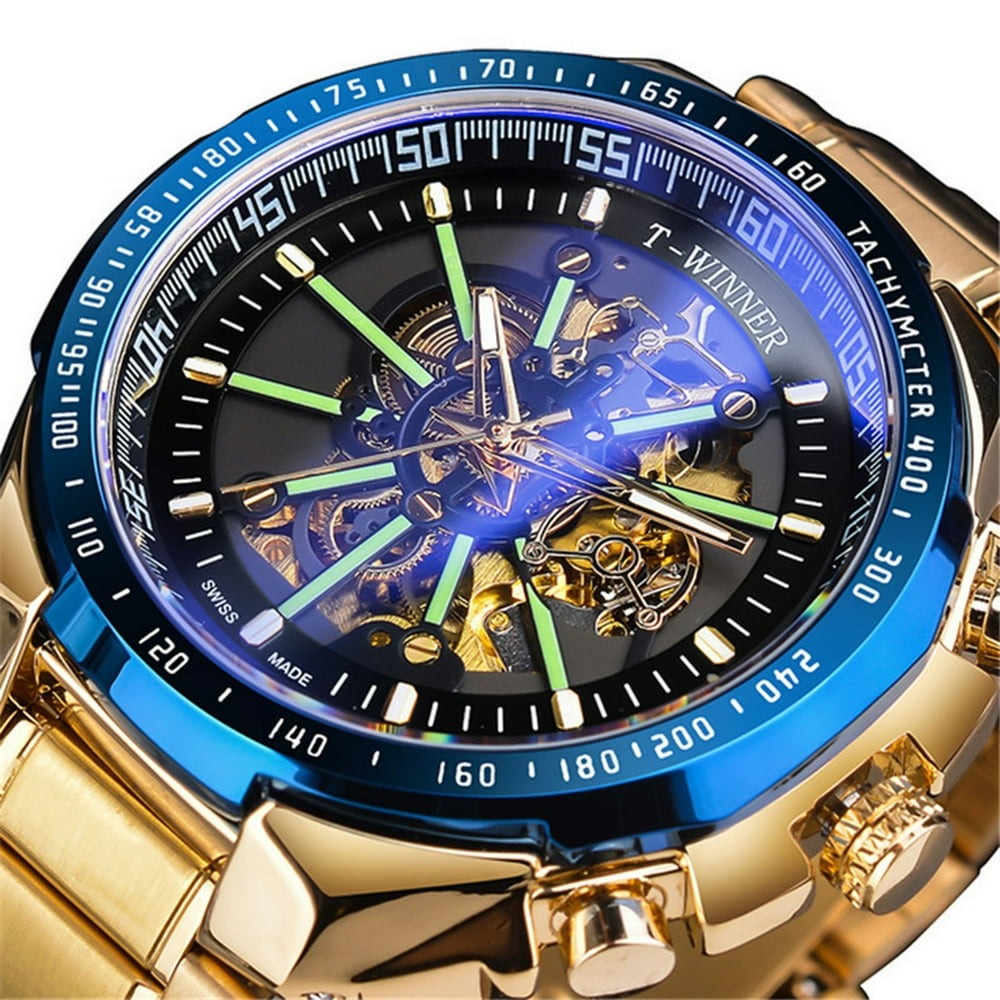
Popular Mechanical Watch Brands
Several brands stand out in the world of mechanical watches, renowned for their quality and craftsmanship. Below is a curated list of prominent brands that deserve attention.
1. Rolex
Rolex is the epitome of luxury watches. Their automatic timepieces, such as the Rolex Submariner and Datejust, are iconic. Rolex watches are celebrated for their reliability, precision, and distinct design.
2. Omega
Omega is known for high-quality precision timepieces, including the Omega Speedmaster and Seamaster. Both models are favored for their unique styles and technical achievements, like being part of the Apollo moon missions.
3. Seiko
Seiko offers a range of mechanical watches, some featuring automatic movements. The Seiko 5 series is well-regarded for its affordability without compromising quality. Seiko’s craftsmanship makes it a favorite among enthusiasts.
4. Patek Philippe
Patek Philippe is a prestigious Swiss manufacturer known for its exquisite timepieces. Their complex movements and limited production runs, such as the Nautilus, command high prices among collectors.
5. Tag Heuer
Tag Heuer specializes in sports watches, blending style and functionality. The Monaco and Carrera models exhibit precision and a modern aesthetic, appealing to those who appreciate sporty elegance.
These brands symbolize quality and prestige in the mechanical watch industry. Whether you’re looking for a daily wearer or an investment piece, exploring different models from these manufacturers can lead you to your ideal watch.
Care Tips for Mechanical Watches
To ensure your mechanical watch remains a cherished piece for years to come, proper maintenance is essential. Here are some care tips to help you preserve the longevity of your watch:
1. Regular Servicing
Routine servicing is vital for maintaining mechanical watches. Watchmakers recommend servicing every 3 to 5 years, depending on the brand and model. This process often involves cleaning the internals, lubricating components, and replacing worn parts.
2. Keep It Wound
For manual winding watches, ensure you regularly wind your timepiece. Allowing the mainspring to run fully down can negatively affect the movement. For automatic watches, ensure you wear your watch frequently. If you can’t wear it daily, consider using a watch winder to maintain the power reserve.
3. Avoiding Water Damage
While many mechanical watches are water-resistant, it doesn’t mean they are waterproof. Avoid exposing your watch to water unless specifically rated for such conditions and always ensure the crown is pushed in or screwed down.
4. Proper Storage
Store your watch in a box, cushioned pouch, or winders when not in use. This prevents scratches and protects the movement. Keeping it away from strong magnetic fields will also reduce the risk of interference with the mechanical components.
5. Clean the Exterior
Regularly clean the case and bracelet. Use a microfiber cloth to wipe off dirt, sweat, and moisture. For metal bracelets, a gentle soap solution can help remove grime, but avoid immersing your watch in water.
By following these care tips, you can ensure that your mechanical watch remains in excellent condition and retains its value over time.
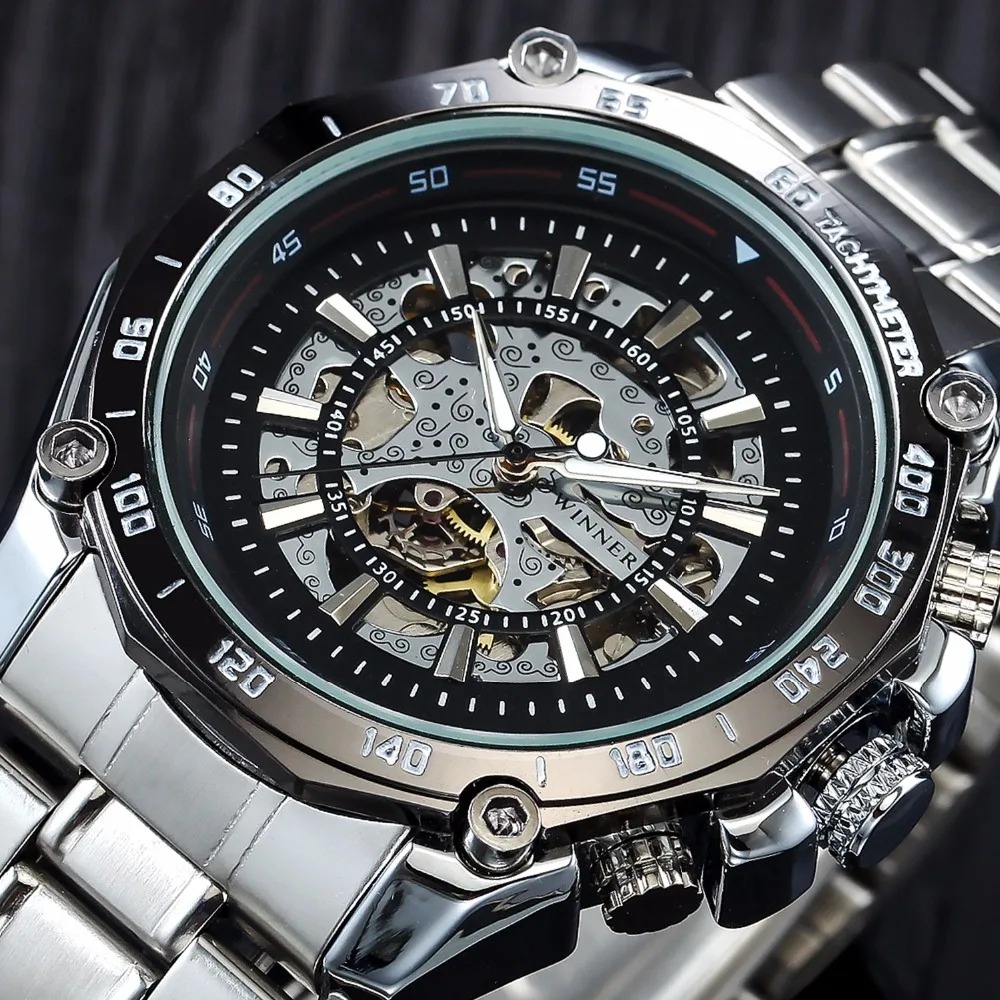
The History of Mechanical Watches
Understanding the history of mechanical watches enhances appreciation for their design and craftsmanship.
1. Early Beginnings
The earliest mechanical timepieces emerged in the late 1200s with the invention of the escapement mechanism, enabling more accurate timekeeping. By the 16th century, portable timepieces began appearing, steadily evolving into the watches we recognize today.
2. The Craftsmanship of the 19th Century
The 1800s saw further improvements in watchmaking techniques, particularly in Switzerland, known as the epicenter of horology. Companies began to emerge, focusing on mechanical precision, leading to a boom in luxury timepieces.
3. The Arrival of Standardization
The industrial revolution in the 20th century brought mass production techniques to watchmaking. This provided more people access to reliable timepieces. However, the focus on luxury and craftsmanship remained strong in high-end mechanical watches.
4. Modern Developments
In more recent years, mechanical watches have experienced a resurgence in popularity. Watch collectors and enthusiasts now appreciate vintage pieces and new models crafted with traditional techniques. Innovative brands continue to explore the boundaries of mechanical watchmaking while honoring traditional craftsmanship.
Understanding the rich history of mechanical watches allows owners to appreciate the art and skill that go into creating these intricate machines.
Conclusion
The allure of the mechanical watch lies not only in its function as a timepiece but also in its embodiment of craftsmanship, history, and artistry. As you explore the world of mechanical watches, consider the unique features, brands, and care tips we’ve highlighted in this guide.
Owning a mechanical watch allows you to carry a piece of history on your wrist, combining incredible engineering with personal style. Whether you’re investing in luxury, collecting vintage models, or simply seeking a reliable timepiece, this timeless tradition continues to capture the hearts of watch enthusiasts worldwide.
Explore various options available in the market, and celebrate the artistry and precision that mechanical watches represent. Your journey into the world of horology awaits!
